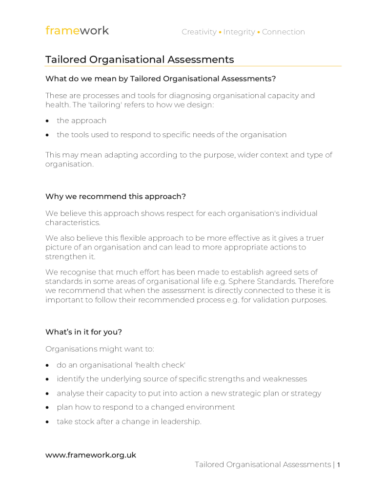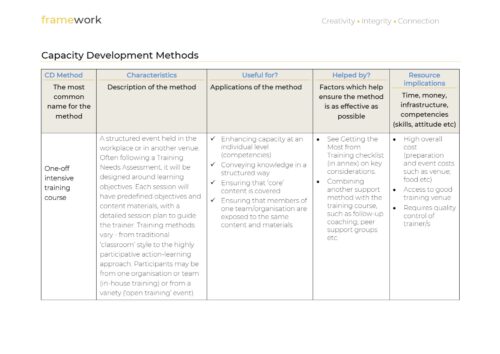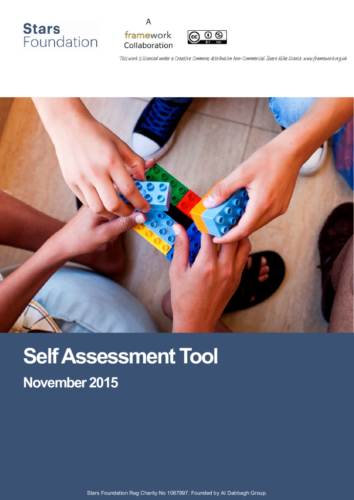Organisational development, innovation and change
Tailored organisational assessments
Summarises the benefits of tailoring an organisational assessment tool to the needs of an organisation, how to do it, and top tips for good practice in using OA tools.
Capacity development methods table
This tool compares an extensive range of capacity development methods, from formal training to less informal peer networks. The characteristics of each method are outlined, followed by its uses and the support and resources the method needs. This tool would be useful for anyone trying to decide on the best method for building different types of capacity.
Self assessment tool for capacity building
A tool to support reflection on internal capacity and processes, identify strengths as an organisation and identify and prioritise areas that may need particular attention.



